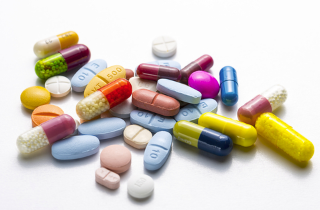What’s the difference between therapeutic use of RX drugs and problem drug use? We review more here. The article includes statistics regarding the problem of teen prescription drug abuse, practical suggestions for parents, understanding the attraction of prescription drugs for teens and recognizing the symptoms of possible prescription drug abuse or addiction.
Then, we invite your questions about teens and how to treat prescription drug addictions in the comments section at the end. In fact, we try to respond to all questions from parents with a personal and prompt reply.
Are prescription drugs being used correctly by teens?
No.
In fact, prescription drug misuse ranks second only to marijuana use among teens. So why such an big gap in understanding?
Teens sometimes need to take prescription drugs for illnesses, but they need to be aware of the dangers of prescription drug abuse. Teenagers tend to believe that prescription drugs do not pose any danger since they are regulated and their use is generally overseen by a doctor. They think that if you pick up a prescription at a pharmacy and a drug company manufactures them, they aren’t dangerous. However, studies show otherwise.
Statistics on teens and the dangers of prescription drug misuse
A 2013 study, Monitoring the Future, indicated the severity of the problem of prescription drug misuse or abuse for teens. In 2013, 4.6% of teens from 12 to 17 misused prescription drugs. For older teens and young adults from 18 to 25, the percentage climbed to 8.8%. During the same year, the likelihood of these age groups misusing drugs was higher than older adults over the age of 26. The number of emergency room visits each day during 2013 for drug-related reasons for teens from 12 to 17 stands as follows:
- pain relievers – 74
- antidepressants – 32
- benzodiazepines – 31
- narcotic pain relievers – 26
- ADD or ADHD medications – 11
The attraction of teen prescription drug abuse
Several factors contribute to teen drug abuse. Misinformation, misconceptions and risk-taking behaviors all increase the likelihood of teen drug misuse or abuse. Other reasons for abuse include:
- physical or psychological enjoyment of the drug
- peer pressure
- the ease of drug availability
Plus, young people sometimes mistakenly believe that prescription drugs are:
- safe
- not addictive
- fine to use, even without a prescription (it’s actually illegal)
Suggestions and tips for parents
Parents should begin to review the following with their children. They can share and elaborate on additional information as the child matures regarding prescription medication. Firstly, teens should know that they need to:
- Use all medications properly and understand their power.
- Learn that the use of medications carries both risks and benefits.
- Acknowledge that risks escalate if a drug is abused.
- Understand responsibility when it comes to the safe use of prescription drugs.
- Ask for help if they think that they or a friend might have a problem.
- Talk to a doctor or a parent about any side effects of prescription drugs.
Furthermore, parents can take the following proactive measures:
1. Maintain open communication with your teen.
2. Keep track of prescription medications in a safe location.
3. Address concerns with your family doctor and ask them to discuss prescription drug use with the teen.
4. Talk to the child directly about prescription medications.
5. Remind them of the dangers and the possible legal consequences of taking someone else’s drugs.
6. Dispose of any unused medications quickly and properly.
7. Oversee your teen’s online activities, especially possible purchases.
Possible symptoms of RX drug abuse
As a parent, you should educate yourself about possible prescription drug abuse so that you can have an informed conversation with your child. Knowing how to identify a prescription drug addict is crucial. Symptoms might include, but are not limited to:
- a drop in grades
- bloodshot or glazed eyes
- changes in appetite
- continued fatigue
- general health complaints
- hidden or secretive behaviors
- mood swings
- other unexplained physical, behavioral or emotional changes
By knowing your teen, you can watch for changes that could indicate prescription drug abuse. In some cases, attendance at a therapeutic boarding school might be necessary to get your teen back on the right track.









Related Posts